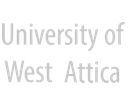Comparative efficacy of different arbuscular-mycorrhizal fungal spp. (AMF) on tomato (Lycopersicon esculentum Mill.)
Abstract
Mycorrhizal fungi have been a paramount source of biological agent by which damages inflicted by soil-borne pathogens/microbes can be checked. A pot study was conducted to screen and to select potential arbuscular mycorrhizal fungi (AMF) for tomato (Lycopersicon esculentum Mill.) var. Pusa Ruby in sandy clay loam soil of Aligarh. Six different AMF were evaluated for their efficacy in term of growth characteristics, nutrient status and mycorrhization. Interaction with AMF species resulted in higher plant growth parameters such as root and shoot biomass and nutrient contents (N, P and K). Measurements of plants, harvested at 20, 40 and 60 days of sampling stages after inoculation showed per cent increase in external and internal colonization, per cent arbuscules in roots and number of chlamydospores per kg rhizosphere soil. Tomato responded to its best to inoculation with Glomus mosseae, followed by G. constrictum, G. fasciculatum, G. aggregatum, Acaulospora scrobiculata and Gigaspora gigantea in terms of plant fresh and dry weight, mycorrhizal colonization, sporulation and nitrogen, phosphorus and potassium content. Out of the six AM fungi screened, G. mosseae was found to be the most efficacious AM fungi for tomato var. Pusa Ruby which can be used as biofertilizer and potential biocontrol agent.
Keywords
Tomato, biocontrol, AMF and mycorrhiza
DOI: 10.26265/e-jst.v10i1.685
Refbacks
- There are currently no refbacks.






